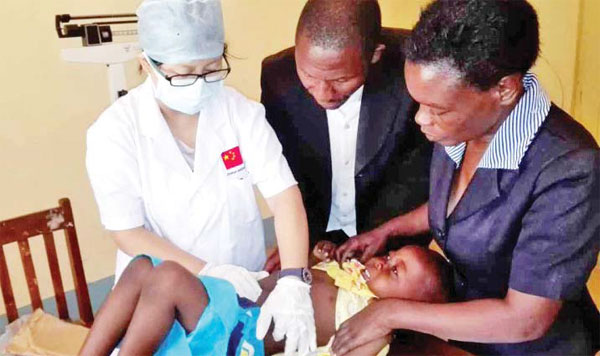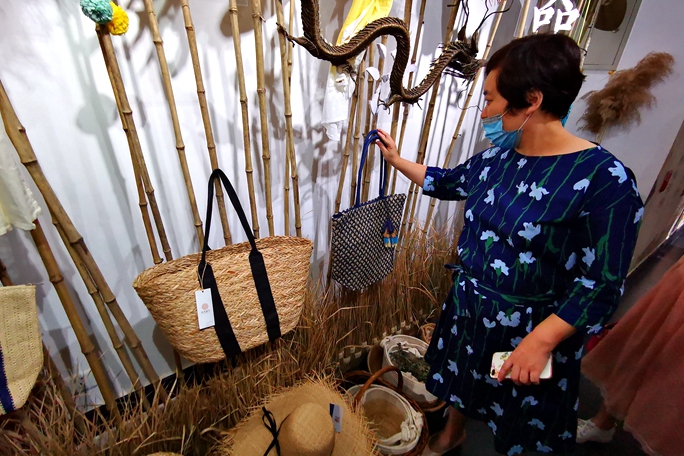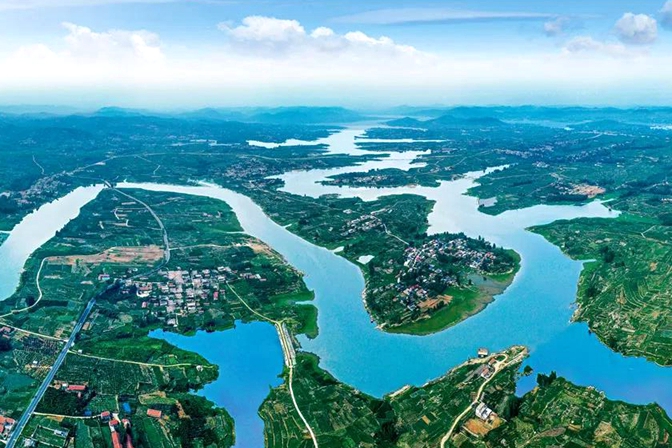Doctor gains rich rewards
Physician from China says not all gratitude is verbal, as she found out working in Tanzania
Qiao Li, a doctor from East China's Shandong province, says there have been many intangible rewards from spending the past year working in Tanzania.
Qiao, 37, from Zibo No 1 Hospital, is among the 25 doctors selected from across Shandong to work in Tabora, Tanzania, for two years, starting in August 2015.
|
Qiao Li of Zibo No 1 Hospital examines a kid in Tanzania. Imman Mani / Tanzania Daily News |
"One day, a couple ran to me and said 'Chinese doctor, wait.' ('Daktari wa China, subili subili' in Swahili, which along with English is widely used in Tanzania.) I had gotten off a full day's duty. They wanted me to check their child, who had been sick for days," Qiao says.
She examined the child and gave them a prescription, and told them how to use the medicine and when to return for a checkup.
"The couple gave me a thumbs-up and said 'Thanks, China.' ('Asante, China.'),"Qiao recalls.
"The thumbs-up was the best reward for my work," she says.
That day, Qiao updated her social media by posting: "Although tired, I am delighted that I am needed and recognized by local people in Tabora, which makes me feel the true meaning of being a doctor who travels afar to work in a strange place. It's worthwhile."
Before starting work, Qiao received half a year of training on a wide range of topics, including oral English, medical English and etiquette. Still, she says she encountered many challenges when she began her job at Kitete Regional Hospital in Tabora.
"It took me three months to get used to their language. Before, I used gestures to communicate with local people," Qiao says.
She says she also put in a lot of overtime.
But Qiao says she was happy to find that local doctors in Tabora were open and receptive to learning new medical skills.
"They were interested in learning and finding solutions, such as how best to give a child a detailed health checkup and how to cure chronic cough. We tried our best to show them improvements in how to conduct their medical practice," Qiao says.
She says from a long-term perspective, that is the most important work she's done while abroad.
"In the long run, those who can save Tanzanian patients are local doctors rather than we who work in Tanzania for a limited time," says Qiao.
During public holidays, Qiao and her teammates volunteered in Urambo to give local people examinations.
"The hospital was crowded with people who came to seek medical help, and they greeted us with local language, making us feel we are warmly welcome," she says.
Qiao has been at home in Zibo for a five-week break after finishing the first year of work in Tabora. She is set to return to Tanzania on Aug 31.
"I cherish every day I spend with my family members, cooking for them and telling them what I saw and experienced in Tanzania.
"It's not easy for my family members. I notice more wrinkles have crept over my parents' faces," she says.
Qiao's son is now 2 years old.
"When I left last year, he could only say baba, but now he can say almost everything. He tells his little friends that his mother is helping other kids in Tanzania, and he can point exactly to Tanzania's location, as well as to other African countries, on the map," says Qiao.
Chang Xu contributed to this story.
zhaoruixue@chinadaily.com.cn
(China Daily USA 08/26/2016 page10)


 Shandong Culture and Tourism Consumption Season
Shandong Culture and Tourism Consumption Season Culture, tourism sectors pick up in Shandong as epidemic wanes
Culture, tourism sectors pick up in Shandong as epidemic wanes

